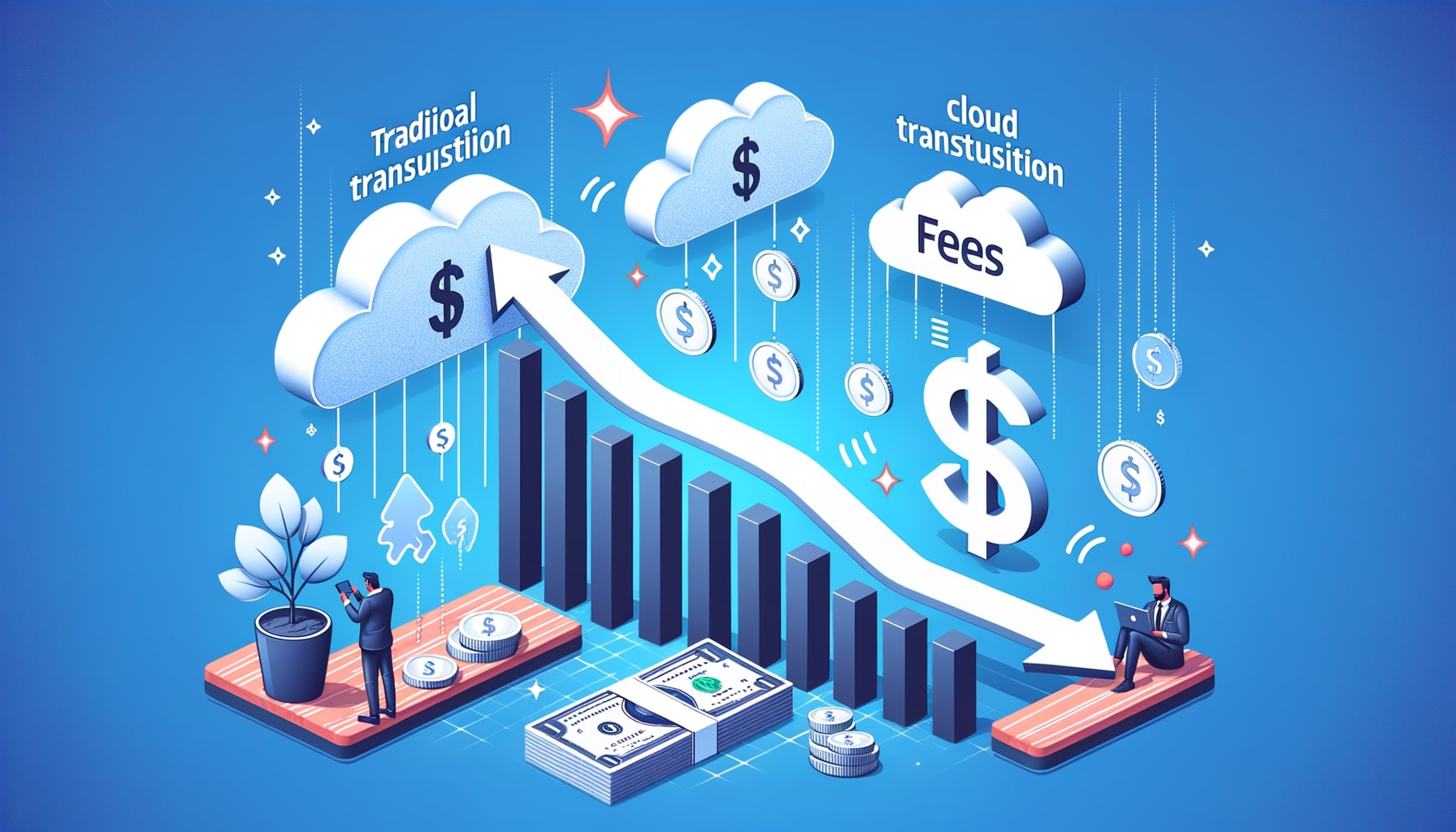The Benefits of Cloud Payments for Nonprofit Organizations
In today’s digital age, technology has revolutionized the way organizations conduct their operations, and nonprofit organizations are no exception. One significant advancement that has transformed the nonprofit sector is the adoption of cloud payments. Cloud payments refer to the process of using cloud-based platforms and services to handle financial transactions, including donations, payments, and other financial operations.
This comprehensive guide aims to explore the benefits of cloud payments for nonprofit organizations, providing a detailed understanding of how this technology can streamline financial operations, enhance security and data protection, save costs and improve efficiency, ensure accessibility and scalability, integrate with existing systems, and help nonprofits choose the right cloud payment provider.
How Cloud Payments Can Streamline Financial Operations for Nonprofits
Cloud payments offer numerous advantages when it comes to streamlining financial operations for nonprofit organizations. One of the key benefits is the automation of payment processes. With cloud payment solutions, nonprofits can automate tasks such as donation processing, invoice generation, and payment reconciliation. This automation not only saves time but also reduces the risk of human error, ensuring accuracy in financial transactions.
Furthermore, cloud payments enable nonprofits to centralize their financial data. By storing all financial information in a secure cloud-based system, organizations can easily access and manage their financial records from anywhere at any time. This centralized approach eliminates the need for manual data entry and reduces the chances of data duplication or loss.
Another advantage of cloud payments is the ability to generate real-time financial reports. Nonprofits can leverage cloud-based analytics tools to gain insights into their financial performance, track donations, monitor expenses, and generate reports instantly. This real-time visibility into financial data allows organizations to make informed decisions and adjust their strategies accordingly.
Enhanced Security and Data Protection with Cloud Payments

Security and data protection are paramount concerns for nonprofit organizations, especially when it comes to handling sensitive financial information. Cloud payment solutions offer enhanced security measures to safeguard nonprofit data. Cloud service providers employ robust encryption techniques to protect data during transmission and storage. Additionally, they implement strict access controls and authentication protocols to ensure that only authorized personnel can access sensitive financial information.
Cloud payments also provide backup and disaster recovery capabilities. Nonprofits can rest assured that their financial data is securely backed up in multiple locations, minimizing the risk of data loss due to hardware failures or natural disasters. In the event of a system failure, cloud payment providers can quickly restore data and ensure uninterrupted operations.
Cost Savings and Efficiency Gains through Cloud Payment Solutions

One of the most significant advantages of cloud payments for nonprofit organizations is the potential for cost savings and efficiency gains. Cloud payment solutions eliminate the need for expensive hardware and software installations. Nonprofits can access cloud-based platforms through a subscription model, paying only for the services they require. This eliminates upfront costs and reduces ongoing maintenance expenses.
Moreover, cloud payments enable nonprofits to streamline their financial processes, resulting in increased efficiency. By automating tasks such as donation processing and payment reconciliation, organizations can free up staff time to focus on more strategic initiatives. This increased efficiency not only saves time but also reduces administrative costs, allowing nonprofits to allocate resources to their core mission.
Accessible and Scalable: Cloud Payments for Nonprofits of All Sizes
Cloud payment solutions offer accessibility and scalability, making them suitable for nonprofits of all sizes. Cloud-based platforms can be accessed from any device with an internet connection, allowing nonprofits to manage their financial operations remotely. This accessibility is particularly beneficial for organizations with multiple locations or remote staff members.
Additionally, cloud payments are highly scalable. Nonprofits can easily adjust their payment processing capabilities based on their needs. Whether an organization experiences a sudden surge in donations or expands its operations, cloud payment solutions can accommodate the increased volume of transactions without requiring significant infrastructure upgrades.
Integrating Cloud Payments with Existing Nonprofit Systems and Processes
Integrating cloud payments with existing nonprofit systems and processes is crucial for a seamless transition to this technology. Cloud payment providers offer various integration options to ensure compatibility with existing systems such as customer relationship management (CRM) software, fundraising platforms, and accounting systems.
One common integration is with CRM software, which allows nonprofits to synchronize donor information and transaction data between their CRM system and the cloud payment platform. This integration ensures that all donor data is up to date and eliminates the need for manual data entry.
Furthermore, integrating cloud payments with fundraising platforms enables nonprofits to streamline the donation process. Donors can make payments directly through the fundraising platform, and the transaction data is automatically recorded in the cloud payment system. This integration simplifies the donation process for both the nonprofit and the donor.
Choosing the Right Cloud Payment Provider for Your Nonprofit
Selecting the right cloud payment provider is crucial for nonprofits to maximize the benefits of this technology. When choosing a provider, nonprofits should consider factors such as security measures, data privacy policies, integration capabilities, customer support, and pricing models.
Security should be a top priority when evaluating cloud payment providers. Nonprofits should ensure that the provider employs industry-standard encryption techniques, has robust access controls, and undergoes regular security audits. Additionally, nonprofits should review the provider’s data privacy policies to ensure compliance with relevant regulations, such as the General Data Protection Regulation (GDPR).
Integration capabilities are also essential. Nonprofits should assess whether the cloud payment provider offers pre-built integrations with their existing systems or if custom integrations are required. Seamless integration ensures that financial data flows smoothly between systems, minimizing manual effort and reducing the risk of errors.
Customer support is another crucial consideration. Nonprofits should evaluate the provider’s support channels, response times, and availability. Prompt and reliable customer support is essential to address any issues or concerns that may arise during the implementation and ongoing use of cloud payment solutions.
Finally, nonprofits should carefully review the pricing models offered by different cloud payment providers. It is important to understand the pricing structure, including any transaction fees, subscription costs, or additional charges for specific features. Nonprofits should choose a provider that offers transparent pricing and aligns with their budget and expected transaction volume.
Common Concerns and FAQs about Cloud Payments for Nonprofits
While cloud payments offer numerous benefits, nonprofits may have concerns or questions regarding this technology. Here are some common concerns and FAQs addressed:
Q.1: Is cloud payment secure for nonprofits?
Yes, cloud payment solutions employ robust security measures to protect nonprofit data. Encryption, access controls, and regular security audits ensure the security of financial information.
Q.2: Can cloud payments integrate with our existing systems?
Yes, cloud payment providers offer integration options to ensure compatibility with existing systems such as CRM software, fundraising platforms, and accounting systems.
Q.3: How can cloud payments save costs for nonprofits?
Cloud payments eliminate the need for expensive hardware and software installations, reducing upfront costs. Additionally, automation and increased efficiency result in cost savings by reducing administrative expenses.
Q.4: Can cloud payments handle a high volume of transactions?
Yes, cloud payment solutions are highly scalable and can handle a high volume of transactions. Nonprofits can easily adjust their payment processing capabilities based on their needs.
Q.5: What happens if there is a system failure or data loss?
Cloud payment providers offer backup and disaster recovery capabilities. Nonprofit data is securely backed up in multiple locations, ensuring data recovery in the event of a system failure or data loss.
Conclusion
Cloud payments have revolutionized financial operations for nonprofit organizations, offering numerous benefits such as streamlined processes, enhanced security, cost savings, accessibility, scalability, and integration capabilities. By leveraging cloud payment solutions, nonprofits can automate tasks, centralize financial data, generate real-time reports, and make informed decisions. The scalability and accessibility of cloud payments make them suitable for nonprofits of all sizes, while integration options ensure compatibility with existing systems.
Choosing the right cloud payment provider is crucial, considering factors such as security measures, integration capabilities, customer support, and pricing models. Despite common concerns, cloud payments provide a secure and efficient solution for nonprofits, enabling them to focus on their core mission and make a greater impact in their communities.










